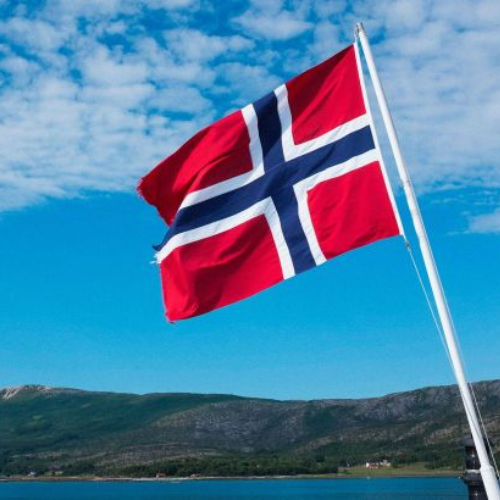A Norwegian man who worked as a security guard at the U.S. Embassy in Oslo has been arrested for allegedly spying for Russia and Iran. The authorities in Norway have accused him of passing on sensitive information to these countries, a serious crime under Norway’s espionage laws. The arrest has caused shockwaves, with officials calling it a “very serious case” and sparking worries about national security.
The Arrest and Charges
The man arrested is Mohamed Orahhou, a 27-year-old Norwegian. He was taken into custody this week in Oslo after being accused of sharing confidential details with both Russian and Iranian intelligence agents. According to Norway’s police, Orahhou admitted during questioning that he had been in contact with an officer from Russia’s S.V.R. (Foreign Intelligence Service) and also had dealings with officials from Iran. However, the exact details of what information he shared have not been made public.
The case is being treated very seriously. The court in Oslo decided to keep Orahhou in jail for four weeks while further investigations are carried out. A second hearing will be held after that. Norwegian officials have stated that they are just beginning their investigation into the matter, and it could take some time to uncover the full extent of the situation.
The authorities did not say exactly what kind of information was involved, but the arrest is part of a broader concern about espionage activities by foreign countries in Europe, particularly Russia and Iran. The U.S. Embassy in Oslo has not yet commented on the situation, but the Norwegian police and security service have called it an urgent matter.
The Role at the Embassy in Norway
Orahhou worked as a security guard at the U.S. Embassy, but he did not have access to sensitive or classified information. His role did not require a high level of security clearance. Despite this, he is accused of passing on information that could have been valuable to foreign intelligence services. It’s not clear exactly what kind of data he might have been collecting or how serious the information he provided was.
The court’s decision to keep him in custody reflects the serious nature of the case. Norwegian police have stated that they are taking a careful and thorough approach, as espionage cases can be complex and involve many different factors.
Italian Espionage Investigation: 2 Suspects Accused of Aiding Russia
Interestingly, Orahhou was also a student at the University of Tromso, located in the far north of Norway. He was studying security and emergency preparedness, a field that covers defense and security issues related to Norway’s Arctic region. This area is of particular interest to both Russia and other global powers, which adds a layer of complexity to the case.
Ties to Russia and Iran
The allegations against Orahhou come amid heightened fears over Russian and Iranian spying activities across Europe. Both countries have been linked to a series of espionage incidents and threats in recent months. In the case of Russia, there have been concerns over acts of sabotage, including the placement of incendiary devices on cargo planes in Europe. U.S. officials have also issued warnings to American defense companies about the risks of Russian sabotage operations.
Iran has also been a source of worry, especially after reports of attempted assassinations and violent plots directed at high-profile figures. Recently, British security officials revealed that they had foiled 20 Iranian-backed plots targeting British citizens, a chilling reminder of the potential dangers posed by foreign espionage.
In the case of Orahhou, authorities are still investigating whether his actions were part of a larger, organized effort to spy for Russia or Iran. If he is convicted of espionage in Norway, he could face up to 10 years in prison. However, his lawyer, John Christian Elden, has stated that his client never had access to classified information and that it’s still unclear whether his actions qualify as serious enough to be considered espionage under Norwegian law.
The case has caused concern both in Norway and internationally, as it raises questions about the security of embassies and the risks posed by insiders who may betray their countries’ trust. The investigation is ongoing, and the authorities are continuing to gather information to fully understand what happened and how far Orahhou’s actions went.


